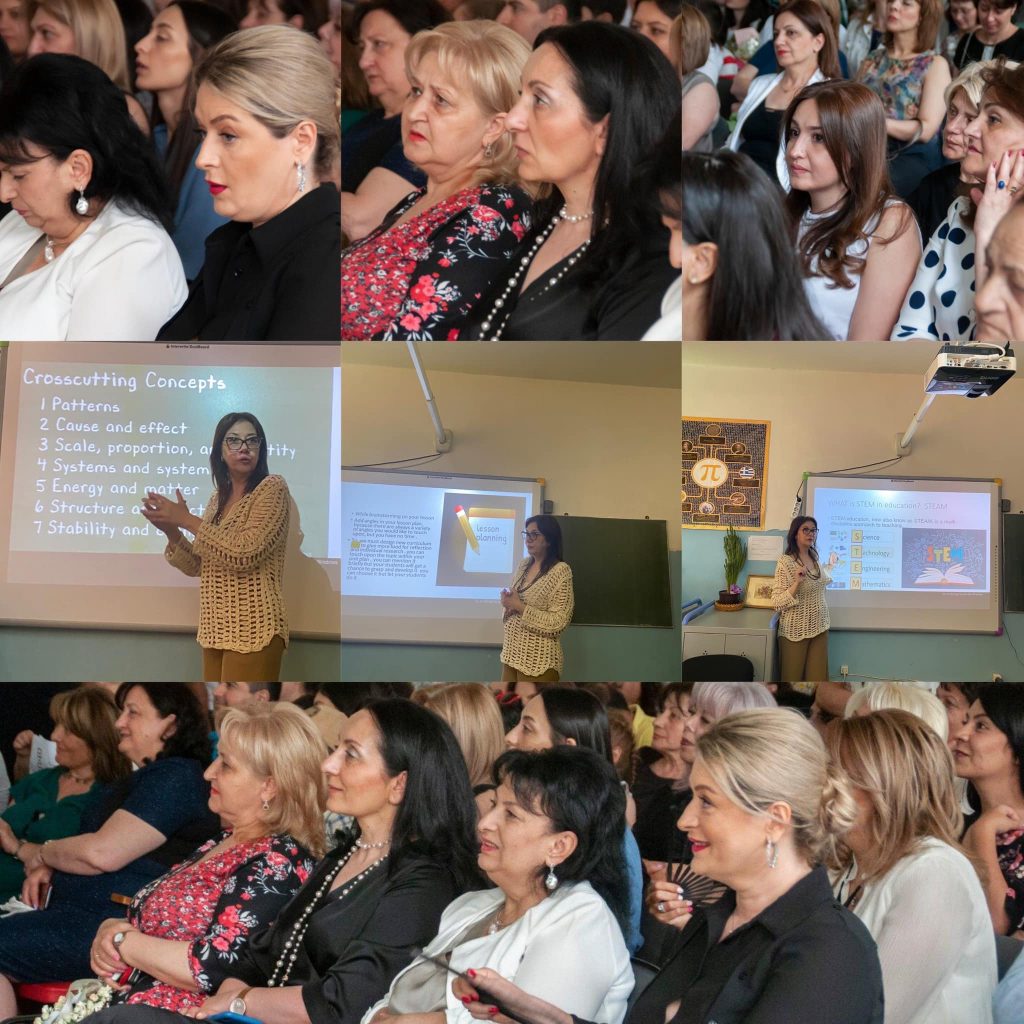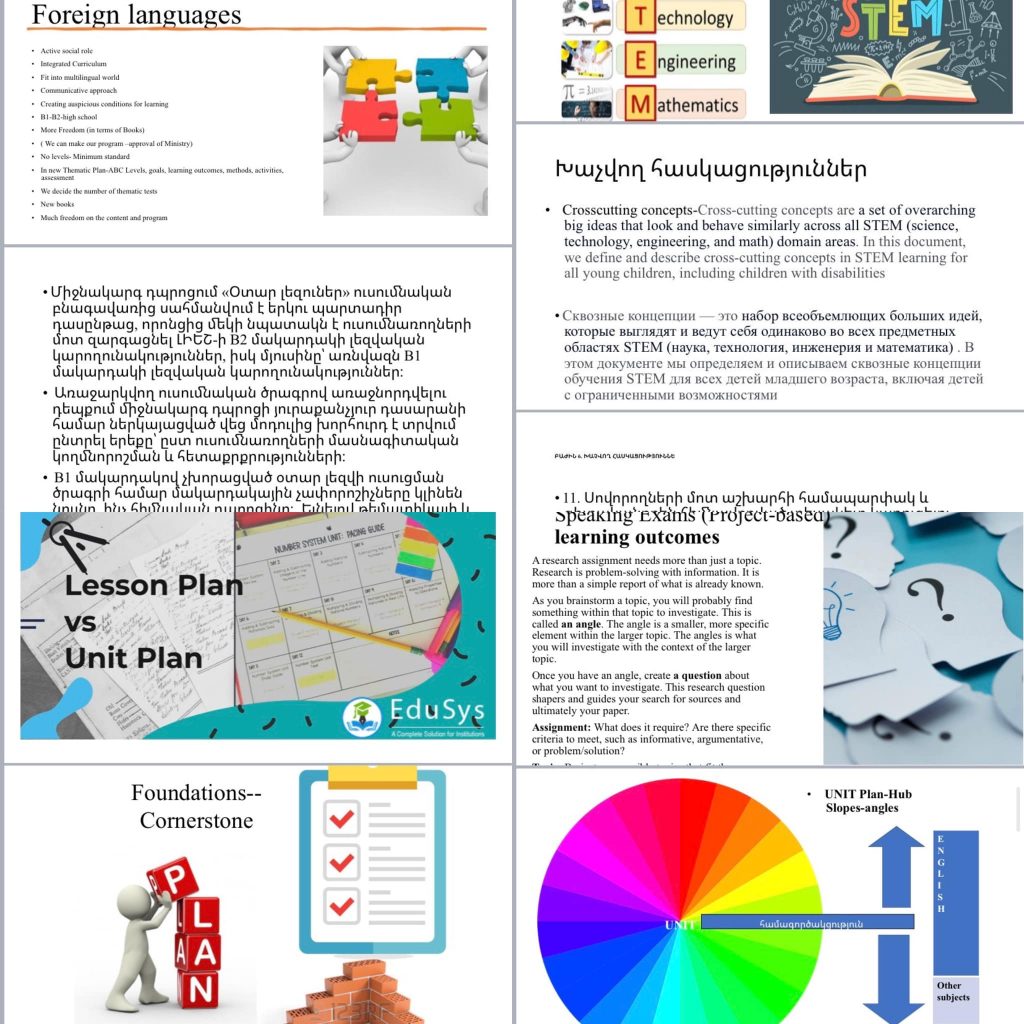

Nowadays the teachers and school administrators are more interested in teacher collaboration than previous generations. While it has historically been common for teachers to work independently, it is becoming more popular for teachers to work in teams. Proponents of teacher collaboration believe that teachers working together have a positive impact on each other and contribute naturally to school improvement. Specific types of teacher collaboration include working together in teams, sharing responsibilities, providing feedback and building trust.
Being enrolled into the process of digesting of new educational standards all the teachers of our school try to contribute to the successful implementation of the program.
The new standard identifies eight competencies as macro-level (general education) learning outcomes. They are lingual and literacy, learning to learn, social and self-awareness, democratic and civic, digital and media, cultural, STEM, and economic. Compared to the current standard, the new standard adopts a more systemized approach to learning outcomes in the form of eight competencies. It defines these competencies as “an efficient and proper way of responding to a given situation,” which is based on different knowledge, values, skills, and positions obtained from different subjects. For example, the Lingual Competency views language as a “compatible tool for participation in social life.” Hence, what is important in language learning under the new standard is the level to which lingual knowledge learned in the academic environment can be used in everyday social life. Today’s meeting proves that the teachers will have to spend numerous hours during the summer months taking classes and training for professional development and planning out the year ahead.
Department of Foreign Languages
